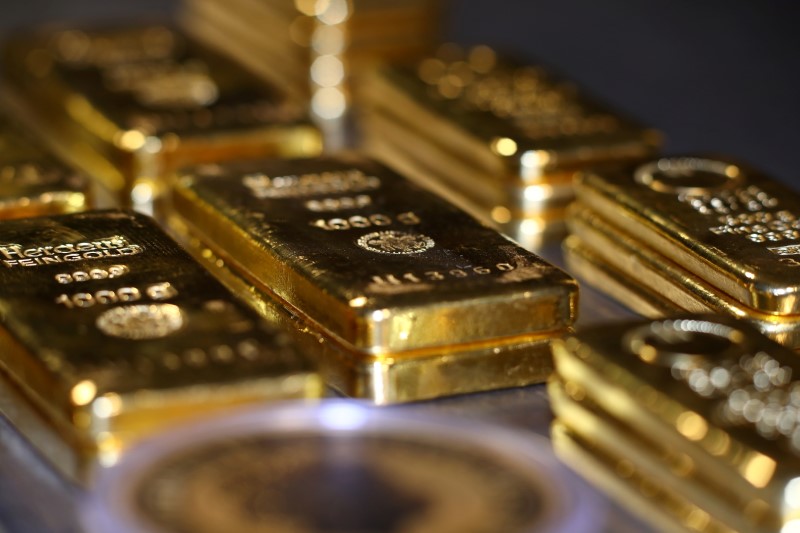Investing.com - Gold prices traded near record highs Wednesday amid increased safe haven demand after a devastating earthquake in Taiwan, but it’s physical demand that BofA Securities expects to drive further gains.
At 04:50 ET (09:50 GMT), spot gold traded at $2,271.60 an ounce, remaining in sight of a record high of $2,288.43 hit on Tuesday, while gold futures expiring in June traded at $2,292.05 an ounce, just below lifetime highs of $2,308.85 an ounce.
Risk appetite was dealt a fresh blow on Wednesday after an earthquake in Taiwan battered the island’s infrastructure and its top chipmaking factories, while also sparking tsunami warnings in parts of Japan.
That said, a significant factor in the push higher has been physical demand, with central banks in particular continually adding gold to portfolios.
“This has perhaps been most visible in China, where the PBOC has been increasing its exposure,” analysts at BofA Securities said, in a note dated April 2.
“That buying has also attracted purchases from China’s retail market participants. Indeed, jewellery sales and non-monetary gold imports hit record highs earlier this year. To some extent this interest reflects a lack of alternative options for Chinese investors, with equity markets and housing still not particularly appealing.”
Yet, despite this demand, the longstanding positive relationship between gold prices and physically backed ETFs has broken down, with assets under management at these vehicles declining.
Most of the outflows have been driven by liquidations from investment advisors, usually a proxy for retail investors. Similarly, and more on the institutional side, net commercial futures positions have remained well below the highs of recent years.
On the flip side, options have been very popular, with risk reversals rallying sharply, while low delta options have been particularly well bid. In short: traders wanted exposure to the rally, but in the form of optionality, not linear investment.
“In our view, this is heavily influenced by continued apprehension over the direction of monetary policy. Yet, if the Fed ultimately starts cutting rates, investors should return to the market, also offsetting potentially lower Chinese investment as sentiment in the Asian country improves and the economy accelerates.”
We had previously proposed a $2,400/oz price estimate if the Fed cut rates in 1Q24; we commit to that estimate for this year, even if rate cuts come later.
